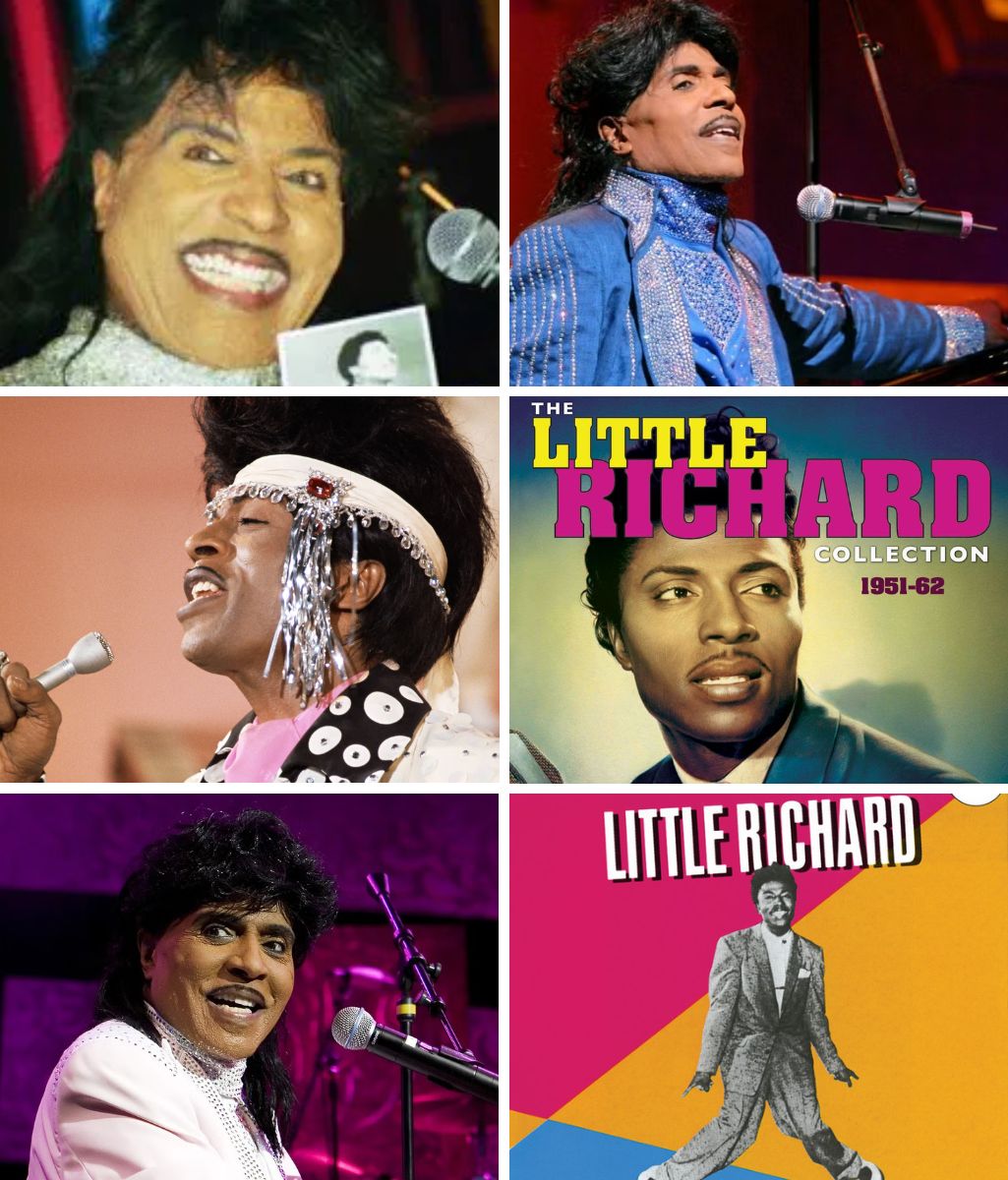
LEGENDARY REVEAL: Little Richard — The Founding Father of Rock Who Shattered Barriers and Changed Music Forever
Few artists embody the raw spirit and revolutionary energy of rock and roll as completely as Little Richard. Born Richard Wayne Penniman in Macon, Georgia, he rose from humble beginnings to become one of the most electrifying performers in music history — a man whose voice, piano, and persona not only helped invent a genre but also shattered racial and cultural barriers along the way.
With hits like “Tutti Frutti,” “Long Tall Sally,” and “Good Golly, Miss Molly,” Little Richard introduced a new sound to 1950s America: frenetic, unrelenting, and infused with gospel fire. His wailing falsetto, pounding piano, and flamboyant showmanship set the template for rock and roll performance, inspiring generations of artists from Elvis Presley and The Beatles to Prince and beyond.
But his impact was more than musical. In an era marked by segregation, Little Richard’s concerts drew integrated audiences, uniting young people across racial lines through the power of rhythm and energy. His unapologetic individuality — from his androgynous style to his fearless confidence — challenged social norms and expanded what it meant to be a star.
Though his career included detours into gospel and moments of retreat from the spotlight, his influence never waned. In 1986, he was inducted into the inaugural class of the Rock and Roll Hall of Fame, cementing his status as one of the true architects of modern music.
Little Richard once said, “I am the originator. I am the emancipator. I am the architect of rock and roll.” And history has proven him right. His music still shakes speakers, his spirit still ignites stages, and his legacy remains a cornerstone of rock’s story.
More than six decades after he first shouted “A-wop-bop-a-loo-bop, a-lop-bam-boom!” the world continues to feel the aftershocks of a man who didn’t just play rock and roll — he created it.